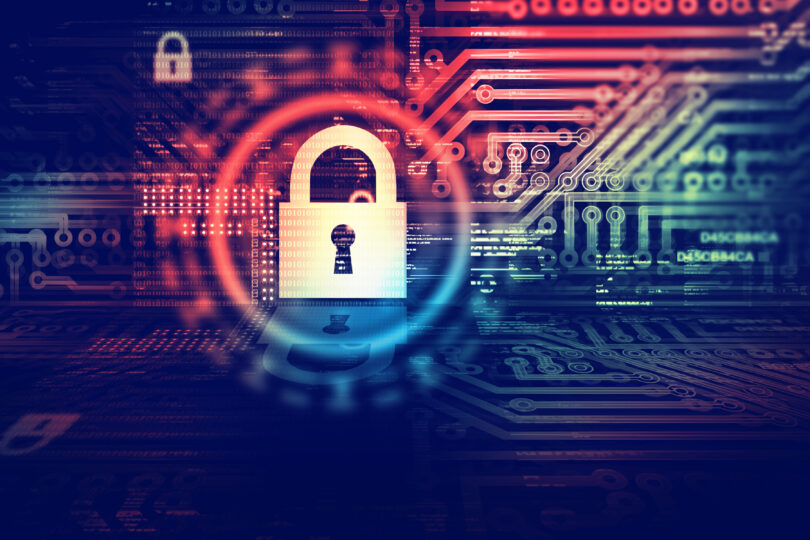Cyber criminals and cyber threats are commonly believed to target businesses the most.
In reality, the majority of hackers are opportunists,they are looking for easy targets. Small businesses have access to money and data, making them potentially valuable targets. Nevertheless, their defences are typically inferior.
If you want to defend your cyber business infrastructure from cyber-attacks effectively, you must have a deep understanding of why layered security measures are necessary, as well as how to implement them all over your business. Here are eight tips on keeping your information secure.
What is Cyber Attack?
An intentional breach of your computer networks or network is considered a cyber-attack. Cyber-attacks use malicious code to gain access to your computer, data, or reasoning to steal, leak, or otherwise hold your data captive. Prevention of cyber-attacks is an absolute necessity for every business and organisation today.
How can you protect your business from cyber-attacks?
1. Always backup your data
Regularly backing up data is one of the least expensive ways to ensure that information can be retrieved after a cyber-attack or computer problem. It’s also a good idea to back up your data in multiple ways to ensure it stays safe. For example, you could back up your data daily to a portable device or the cloud and back up your server at the end of the week, four times a year, and once a year. A data backup must also be tested frequently to ensure it can be recovered and is working efficiently.
It can help to not leave the backup source connected to a computer to prevent infection. It’s better to keep it in a secure location away from the rest of the building to prevent theft or severe harm. Cloud storage should use strong encryption and multiple ways to log in to keep data safe.
2. Restrict access
Employee access to company-owned networks and data should also be divided and restricted. Even though it’s easy to think that all cyber threats come from hackers on the outside, many threats come from inside your organisation. You can limit the damage a single hostile user or hacked account can do by having strict rules about who can access what.
3. Use strong passwords and change them regularly
Many security specialists agree that you should always use different passwords across all your online accounts. If you don’t, you could end up leaving yourself vulnerable to hackers.
To ensure your account is safe and secure, try creating unique passwords that include numbers and characters. Additionally, you must ensure the credentials are updated at least once every three months.
4. Implement security policies and practices
Use complex passwords that combine letters, digits, and symbols to keep your account private. You should also ensure the passwords are changed at least every three months. Your employees and you both need to remember this.
- Restrict who can access the company’s gadgets and ensure they’re correctly disposed of.
- Avoid having anyone who isn’t an employee use your company’s laptops and mobile devices.
- Factory reset any electronic gadgets that are being discarded.
- Never throw away a computer or mobile device without first doing this as. hackers could gain access to sensitive business data if you don’t.
5. Enable multi-factor authentication
Using multi-factor authentication (MFA) is also standard practice regarding data security. Users have more security because they must show more than one form of authentication before getting into their accounts. This system requires a password in addition to a code that is sent to a different device.
6. Secure data and network
Users should never ignore device update alerts since they’re essential to ensuring that operating systems and security software are updated automatically to address security vulnerabilities.
Companies would benefit from using spam filters to reduce the number of spam and phishing emails, which are often used by cyber criminals to get into devices and steal sensitive information.
7. Use Firewalls
Also, it’s crucial to set up a firewall, which will act as a “gatekeeper” for all data coming in and going out. Consider investing in security software such as Kaspersky, a virtual private network (VPN) or a firewall. Even though these defensive lines might not be able to halt every attack, if they are used correctly, they can attain high success.
8. Keep your systems up to date
One of the best ways to secure your business from hackers is to regularly update and improve its tech tools. In the programming and development world, new threats are constantly being monitored, and when one is found, a fix is typically released to close the security hole. Yet, this fix requires installation before its benefits can be enjoyed. Many businesses risk being breached because their devices and apps are out-of-date.
Why is it important to secure your business?
Protecting all kinds of data from being stolen or lost is essential to cyber security. Things like private information, protected health information, personally identifiable information , proprietary information, data, personal information, and information networks that businesses and governments use can be targeted by cyber criminals.
Without the constant work of computer security experts, many websites would be nearly impossible to enjoy.
Final Thoughts
When protecting your business from cyber crime and cyber attacks, you may not know where to start. It’s easy to feel lost in the sea of available data.
Your company and employees deserve a quality solution. Contact us and visit our computer software store immediately so that we can help your business choose the right security software for you.







